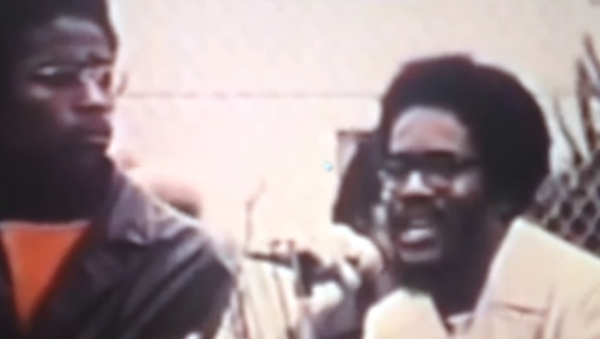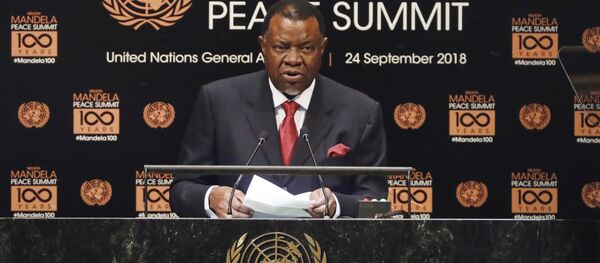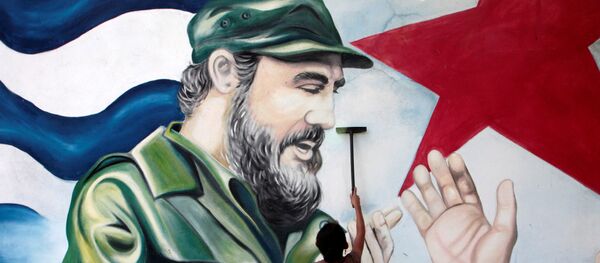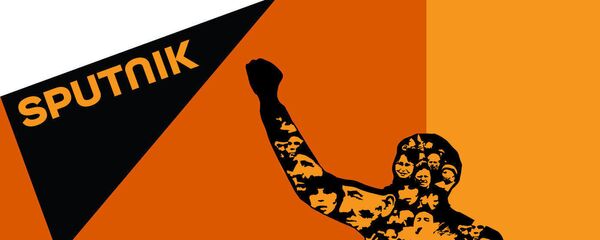Devyn Springer of the Walter Rodney Foundation spoke with Radio Sputnik's By Any Means Necessary about Rodney, the riots that bear his name and the legacy of both as part of the anti-colonial and Black Power movements.
Springer told hosts Eugene Puryear and Sean Blackmon that Rodney, who had lived and taught in Jamaica at the University for the West Indies (UWI) for about nine months by the time of the riots, was an advocate of a pedagogical approach called "groundings," in which he sought to "disrupt the divide between academia and everywhere else" by "going into the streets; he would go into, you know, the ‘hood,' he would go into the poorest of poor places, he would go to the factories where workers were, and he would teach them about African history and liberation."
"He was very revered and loved in Jamaica," Springer said, and people knew he would "take it from academia and distribute it [to the people for free]."
However, this kind of populist street education earned him the ire of Prime Minister Hugh Shearer's administration in Kingston, which on October 15, 1968, barred the Guyanese intellectual from returning to Jamaica after he traveled to Montreal for an academic conference with other Black writers.
As word spread across the island, a student-worker movement rose up in opposition to Rodney's banning. UWI students erupted in anger, marching to the offices of the prime minister and minister of home affairs after buses obtained for the task never showed up. The students marched in their red academic gowns, carrying homemade signs. Police met them with tear gas, which dispersed much of the student march. "When I realised that I could actually be arrested, the demonstration lost its appeal," Carolyn Cooper, who was a freshman at UWI in 1968, recalled to the Jamaica Gleaner for an article published Monday. "I don't know what I would have told my poor mother. I quickly calculated that discretion was, indeed, the better part of valor and retreated to the campus."
However, Kingston residents rose up as the students fell back, storming the city center and smashing much of the business district, reportedly specifically targeting symbols of foreign wealth such as banking, insurance and oil firms; foreign-owned city buses that charged higher fares; and expensive cars.
After the riots dispersed, police and soldiers occupied the university for weeks, Cooper said. "We had the luxury of time to reflect on the meaning of the protests and our role as university students in transforming political systems of inequality."
"If you read Walter Rodney's reflections on his time in high school,"Springer said, "he talks about getting in arguments with his teachers because he loved [Russian communist leader Vladimir] Lenin. He would always say, ‘I love Lenin because he's a thinker and a doer,' and the teachers would tell him, ‘You can be an activist or a scholar; you can't do both.' So from a very young age, he was very interested in saying, like, ‘I don't want be a scholar or an activist, I wanna be a scholar-activist.' Later he actually developed the term ‘guerilla intellectual.'"
"So that, to me, encompasses the aura of Walter Rodney. He was so interested in Lenin, but also [Ghanaian President Kwame] Nkrumah as well, two people who really grappled with ideology and theory and history in very material, actionable ways. So this is really who Walter Rodney is, and this is why, acoss the black world, his legacy is so ingrained: because he wasn't just a writer or a historian or an ideologue, he was doer and an organizer and an activist."
Springer noted that Rodney makes very clear in his writings that he's "interested in bringing the Black Power movement across the Caribbean, from the US and abroad."
"At this time you have this turning tide where, before, the only ‘black revolution' in the Caribbean that had happened was Cuba. And I say ‘a black revolution' because if you know anything about the Cuban revolution, that's what it was." Springer noted that because the Cuban people speak Spanish, there wasn't as much of a threat of "direct communication to the black community in the US" as there would have been in another Caribbean country.
"So what we have at this time is the turning tides in Grenada; you actually have a revolutionary movement taking place in Haiti, in Jamaica, Guyana, Walter Rodney's home country. So, the US intelligence… they were actually in talks with Jamaican intelligence, and they had Walter Rodney on their radar. There's been a lot of questioning on whether his refused entry was kind of a demand from the US intelligence community to the Jamaican officials, because the Shearer government was very loved by the people, the people of Jamaica, because he created a lot of jobs; that's what his whole prime minister campaign was on. So from him doing that, it went back against everything he ‘claimed to stand for.' So the only other explanation is that, if we have documents at the same that reveal that US intelligence had him on their radar and that Jamaican intelligence was coordinating with US intelligence on anything related to Black Power, the only answer is that that was a direct command. And to me, the fear of a good example spreading across the Caribbean and these black islands, that power would only radiate [back] to the US and beyond."
Springer, who recently returned to the US from Cuba, noted the Rodney regarded the Cuban revolution as a model for "what a black revolution in the continent of Africa could look like." Rodney lived in Cuba twice during his life, the second instance being after the Shearer government blocked his return to Jamaica, during which time he saw the structure of the Cuban government and revolution was "black as hell," Springer said. Rodney also observed subsequent advancements in literacy, jobs and the ending of homelessness, as well as specific campaigns "targeted at leveling the playing field for black Cubans."
He noted that, in some places in Cuba, "racism has permeated" and that you see "small, interpersonal places of racism taking place across the island, but it's not institutionalized; it's not systematic; it's not anything that could compare to the West."
"So when you put Walter Rodney's legacy and his works and writing in that context, I think that was the future he was writing about," Springer said. "He was for a place that, through revolutionary action, could dwindle racism down as much as possible to just, like, a mere interpersonal occurrence. That, to me, is much easier to eradicate, something that's happening on an interpersonal level, than institutional."
After Rodney eventually returned to Guyana, he was assassinated in 1980 by the Forbes Burnham government in Georgetown. Springer noted that since the return of Burnham's party, the People's Progressive Party, to power in Guyana in 2015, efforts to uncover and obtain files about Rodney's murder and the subsequent coverup have been repeatedly frustrated. However, Springer noted that the bomb used to assassinate Rodney was made using parts from the United States.









